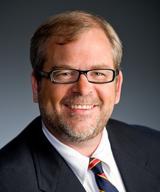John Haried, who is the Department of Justice’s assistant national criminal discovery coordinator, told his audience at Legal Tech New York 2012 that the U.S. Department of Justice will be embarking on a long-term e-discovery training program this year. It was just one of many insights he and his colleagues shared with audience members interested in hearing directly from government representatives on discovery issues. Mr. Haried told conference attendees that leaders from various federal agencies will be learning modern discovery and e-discovery techniques and will return to their respective bureaus to educate another 50,000 investigators.
His panel, The Evolution of Risk and Responsibility in Criminal Investigations, also featured insights from Tracy Greer, senior litigation counsel for e-discovery with the Antitrust Division of the U.S. Department of Justice, and Bridget Logue, the litigation support manager for the Office of the United States Attorney in the Eastern District of Pennsylvania.
Combined with the panel Civil Litigation: When the Government is a Party, featuring Allison Stanton, the director of e-Discovery, and Joshua Wood, the chief of litigation technology, both with the Civil Division of the U.S. Department of Justice, the government’s representatives discussed the continuing evolution of discovery in criminal and civil cases.
Attendees of the sessions, moderated by George Kiersted, president, Kiersted Systems, were from major law firms, corporations, consulting firms and vendors. While they specifically noted that the views they expressed in the presentations were solely those of the panel members and did not necessarily reflect official positions of the U.S. Department of Justice, both programs were informative.
Each panel stressed the value of regular, proactive and even creative dialog with the government when involved in all types of matters, whether civil or criminal, plaintiff or defense. One example of proactive communication is to discuss search strategies, including the use of concept searching, before they are deployed. The panelists also encouraged legal team members to demonstrate credibility, transparency and creativity to overcome inevitable obstacles.
Stanton and Wood advised that e-discovery is integral to each role the government plays. The government’s roles include investigations to determine whether to bring formal charges for fraud, securities violations, consumer protection concerns or civil rights abuses. It also acts as the (1) plaintiff in enforcing False Claims Act, contract, and other disputes; (2) defendant in cases challenging federal programs and employment actions; and (3) regulator in cases dealing with the Securities & Exchange Commission or Federal Trade Commission.
Scope And Sampling
For the sake of efficiency, Stanton and Wood suggested that litigants gauge the scope of the claims at issue, as well as the relevant data types, early in the lifecycle of the case. Limiting the extent of discovery from the outset will help focus document demands, reduce time and lower costs. Initial discussions on these topics often set the tone for an ongoing dialogue, they said.
Mr. Haried and his team mentioned that in criminal matters, subpoenas are broad and typically demand all documents, electronic or otherwise, within the “possession, custody, or control” of a particular party. This may include entire records systems, social media and cloud repositories. These demands require defense teams to include staff to join conversations early to ensure timely production and reduce the potential for inadvertent destruction.
Given that resource limitations impact the scope of every search tactic, all of the panelists supported data sampling to assess whether a request is too broad or narrow before proceeding. System architecture, data locations, back-up procedures and legacy material can impact these discussions, so they remarked that your team should include those who understand the granular details.
Powerful Production
To avoid issues that can arise during the production phase, the panelists encouraged teams to communicate, use sample loads and attend to specifications. Early interaction with lawyers for the government can result in helpful guidance and often mitigates production problems.
Relevance Is Not Always The Benchmark
The panelists agreed that criminal disclosure requirements vary from civil determinations of relevance. Haried, Greer and Logue highlighted that the duty of witnesses to preserve evidence in criminal cases exists even without a subpoena. They therefore encouraged defense counsel to discuss preservation issues with the government, particularly when such issues as dynamic systems that do not lend themselves to static preservation are involved.
The panelists also mentioned that unlike government lawyers in civil cases, criminal prosecutors have unique concerns regarding the safety and confidentiality of witnesses. John Haried’s presentation included a number of startling headlines regarding such things as the murder of witnesses, bribery of attorneys, and hacking of electronic data.
The Outlook For 2012
Stanton and Wood noted that President Obama’s “cloud first” policy mandates that government agencies evaluate safe and secure cloud computing options before making any new investments. They highlighted that the 25-point plan to reform federal information technology initiatives requires agencies to identify and migrate projects to the cloud.
The panelists predicted that legal teams will also see more formal public notifications of discovery procedures in both civil and criminal matters. In fact, John Haried discussed the joint e-discovery protocol with the Federal Defender Services that the Department of Justice released in February to provide personnel with principles, specific recommendations, strategy tips and a case checklist.
By focusing on innovative technology and open communication, lawyers for the government are promoting a culture of fairness. Those who facilitate an open dialogue, fully prepare their case and act in good faith will streamline the experience for their clients and their entire legal team. Look for continued improvements in the e-Discovery arena in 2012 and revisit the panels at LegalTech NY 2013, where George Kiersted will again moderate these important panels for the third year in a row.
Published March 27, 2012.



